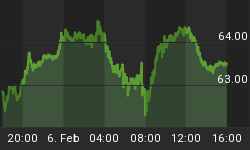Currency War Brings Strong Dollar

Sometimes the news stories on Wall Street fit neatly together like a jigsaw puzzle. Japan has been trying to devalue their currency for some time. Quantitative easing was announced last week in Europe to combat slow growth and low inflation. All of the attempts to devalue have created demand for the U.S. dollar. On January 8, The Wall Street Journal noted the challenges a strong dollar brings to the Fed's Open Market Committee, which is releasing their latest statement Wednesday:
U.S. policy makers would be furious if other countries try to "steal" growth by putting American exports at a disadvantage. But there is probably little that can be done to stop these competitive devaluations once they begin. The Fed could theoretically keep interest rates at or near historic lows far beyond 2015, hoping that this would reduce the attraction of owning dollars. But this is problematic if the recent spurt of U.S. growth continues or accelerates. The Federal Open Market Committee is committed to bringing interest rates up to a historically more normal level. Aside from the dollar legally being a Treasury Department responsibility, the Fed's primary concern is the systemic risks from domestic asset bubbles if policy is not tightened as growth picks up, not baby-sitting countries that are devaluing.
Why does the Fed care about a strong dollar? The blurb below is from the front page of today's Wall Street Journal:
The stronger dollar is slicing sales and profits at big American companies, prompting them to put renewed emphasis on cost cutting and cramping the broader U.S. economy. The currency effects are hitting a wide swath of corporate America--from consumer products giant Procter & Gamble Co. to technology stalwart Microsoft Corp. to pharmaceuticals company Pfizer Inc. Those companies and others have expanded aggressively overseas in search of growth and now are finding that those sales are shrinking in value or not keeping up with dollar-based costs.
All of the above should make for a very interesting statement from the Federal Reserve later today.















